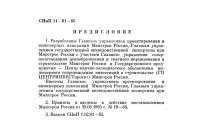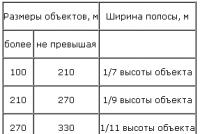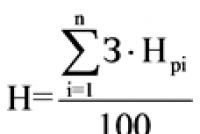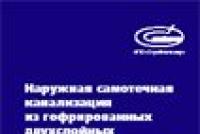Obligatory cashless payment. How to open a non-cash settlement account for individual entrepreneurs We work both by bank transfer and in cash
1. In the framework of a number of cases, considered by some district arbitration courts * (574), the following was found out. The entrepreneur sold goods using bank payment cards. The tax inspectorate considered that the entrepreneur made settlements in a non-cash manner, "... therefore, income received from trade by bank transfer is subject to taxation in accordance with general regime... According to the Inspectorate, the entrepreneur's activities related to retail trade using bank payment cards are not subject to the taxation system in the form of a single tax on imputed income. "
FAS VSO agreed with the entrepreneur's argument that the requirements of Art. 861 of the Civil Code "... do not contain a clear concept of cash settlement, this circumstance gives rise to irreparable doubts about the application of the specified rules of law, which ... should be interpreted in favor of the entrepreneur." In addition, neither the Civil Code itself, nor the Regulation on cashless payments, nor other documents "... payments by payment cards are not classified as forms of non-cash payments, therefore they are not non-cash payments." The court also considered that the correctness of this conclusion is confirmed by the subsequent amendment of the definition of retail trade, contained in Art. 346.27 of the Tax Code, according to which retail trade began to be recognized "for cash, as well as with the use of payment cards".
2. The FAS VVO (resolution of 05.12.2005 N A82-5464 / 2004-14) and the FAS ZSO (decisions of 16.11.2006 N F04-7614 / 2006 (28433-A27-3), of 20.09. 2007 N F04-6288 / 2007 (38124-A46-7)), which, agreeing that Art. 861 does not contain a definition of non-cash payments and that neither the Civil Code, nor the Regulation on Non-Cash Payments classifies payments using bank cards as non-cash, nevertheless, they indicated that "... other non-listed in it ( in article 862 of the Civil Code. - VB), forms of payment ". This is exactly what was done by the Central Bank of the Russian Federation, which, with its specialized regulations governing the procedure for making payments using bank cards, referred them to non-cash payments. "A similar position is contained in the letter of the Ministry of Finance of the Russian Federation of 03.06.2003 N 04-05-12 / 60" - the court indicated. "Under such circumstances, - concluded the FAS ZSO, - the sale of goods using bank cards and bills, performing the functions of credit bank cards, is rightfully qualified by the Inspectorate of the Federal Tax Service of the Russian Federation as a non-cash form of payment." The FAS ZSO was also informed about the change in the definition of retail trade introduced in the Tax Code, but explained it in a completely different way, namely in the sense that the mention of payments using payment cards, carried out along with the mention of cash payments, indicates that that payments using payment cards are not included in the category of cash.
3. It is the latter point of view that should be recognized as correct. The reason, of course, is not that payments with bank cards were classified as non-cash acts by the Central Bank of the Russian Federation and the Ministry of Finance of Russia, but that such payments are indeed non-cash, because they involve the repayment of the cardholder's monetary debt without the use of cash (money). The fact that one of the elements of the technical design of such calculations is a cashier's check - a document made using a cash register - does not turn payments using bank cards into cash, since such a check is necessarily accompanied by a special document, which in everyday practice is called a slip , but by its legal nature it is very similar to a personal check. The presence of this document means that the "accompanying" cash register receipt acquires special legal significance: it does not indicate the receipt of money (cash) at the cash desk, but about the acquisition by the recipient of the payment of a monetary claim against the issuing bank credit card... The implementation of this requirement will lead to an increase in the balance money by bank account payee. Thus, the monetary debt of the credit card holder will be repaid as a result of its acquisition by the counterparty at the expense of the monetary claim against the servicing bank; it is, of course, impossible to qualify such a result differently from the effect of non-cash payments.
Until July 2017, non-cash payments, whoever made them, did not require the use of cash registers. However, with the introduction of amendments to Law No. 54-fz, individual entrepreneurs and organizations that accept payment by bank transfer from individuals were obliged to use the CCP and issue cash receipts to customers in electronic form.
The need to use an online cashier by bank transfer depends on who transfers the funds - a business entity or an individual.
Note: the legislation refers to business entities as individual entrepreneurs and legal entities who purchase goods not for personal use (as an individual), but for conducting business.
Individual entrepreneurs and organizations that accept payment by bank transfer from citizens are required to use cash registers and issue to buyers (clients) checks or forms of strict reporting.
New order the use of CCP for non-cash transfer of funds will begin to operate from July 2018. The postponement for a year is due to the fact that earlier entrepreneurs and individual entrepreneurs were not required to use cash registers when funds were received into the account, including from individuals. For such categories of entrepreneurs (who previously had the opportunity not to use cash registers), a deferral of one year is provided from July 2017 to July 2018.
Who was obliged to apply the CCP with bank transfer until 2018
The previously valid rules provided for an exemption from the use of online cash registers when transferring funds to a current account. Cash registers were used only when paying in cash and bank cards, both by individual entrepreneurs and organizations, and by individuals.
Who is obliged to apply CCP for bank transfer after 2018
SP and legal entitieswho receive payment to the current account from individuals (citizens) are required to use from July 2018 cash registers that meet the new requirements.
Note: form (system) of taxation in in this case irrelevant.
Who is not obliged to use CCP for cashless payments
Individual entrepreneurs and organizations that settle only with other individual entrepreneurs and companies that purchase goods not for personal use, but for entrepreneurial activity, may not use KKM and not issue cash receipts.
Which check should be issued - paper or electronic
Since the calculations take place remotely, physically transfer paper version check is not possible, then the legislation provides for the issuance of only an electronic check generated no later than 5 minutes after receipt of payment to the account.
Note: must contain all the required details, statutory No. 54-FZ.
At what point do you need to break a check
Since the funds are credited to the current account not instantly, but after a while, the seller must send a check to the buyer (client) from the moment of confirmation of the execution of the order to transfer electronic means of payment credit institution.
The Ministry of Finance stated this position in its Letter dated February 2, 2017 No. ЕД-4-20 / 1850 @.
How to return goods when paying by bank transfer
When returning funds to a client (buyer) before receiving official explanations from the regulatory authorities, you can be guided by the recommendations of the Central Bank of the Russian Federation, set out in the letter dated 01.08.2011 N 112-T "On the return of funds for a product (service) previously paid using payment card", And make a refund by transferring funds for the returned goods by payment order to the buyer's details specified in the application.
Which online cashier to use when paying for goods by bank transfer
The choice of the cash register in this situation depends on whether the entrepreneur or organization receives payment in cash or by cash.
If the activity is carried out on the Internet, payment is received only to the current account or from, then you can choose the option of an online cash register for online trading. The difference between these cash registers is that they do not have a printer that allows you to print cash receipts. This option is not suitable for those who accept payments in cash and cards on the spot (for example, when issuing goods and paying for them to a courier). They will have to additionally purchase a cash register with a POS terminal, which allows them to generate checks in paper form.
You can also consider the option of renting an online cash register provided by a number of services on the Internet. An individual entrepreneur or an organization enters into an agreement with a service for renting a cash register. The cash register itself is located at the landlord, and the tenant receives remote access to it. After payment is received, the cashier generates a check and sends it to the buyer, and information about the operation performed is sent to the fiscal data operator.
Settlements with buyers and customers should be formalized by issuing a cash register receipt or SRF.
Thus, if payment to the bank account comes from the company or individual entrepreneur you do not need to use the cashier, but if from natural person, it is required.
The term for switching to online cash registers upon receipt of payment to the current account
Since before the amendments were made to Law No. 54-FZ, individual entrepreneurs and organizations that received payments from citizens by bank transfer were not required to apply CCP, new law provided for them a delay of one year - until July 01, 2018.
Table No. 1. Terms of transition to the online checkout when paying by bank transfer
Features of the formation and issuance of a cash document when paying by bank transfer
Upon receipt of payment to the current account from an individual, the seller must form and send to the buyer cash document: check or SRF.
The document must be sent in electronic form, taking into account all the requirements of the legislation, in particular, Law No. 54-FZ.
Requirements for a cash document generated upon receipt of payment by bank transfer
Scroll required details, which must contain a cash document, is given in paragraph 3 of Art. 1.2 of the Law No. 54-FZ of 22.05.2003. In particular, these include:
- Registration number of KKT.
- The amount, date and time of the settlement (receipt of funds on the account).
- Fiscal attribute of the document.
- Information about the resource on which the document can be downloaded and subsequently printed on paper.
According to the specified document, the refund of funds received by bank transfer is made by the credit institution that previously accepted these funds, according to the register of payments or an electronic journal containing information on the return of goods (refusal of services). For clarity, we will consider this process in stages.
Despite the global trend of a sharp increase in the number of non-cash payments, people are still wary of them. And there are good reasons for such an attitude. Cashless payments, you will not limit us!
Irrational connection
Some technologically developed countries are already recording up to 97% of cashless transactions. But in general, the world is in no hurry to give up banknotes and coins.
So, according to the BBC, from 2007 to 2012, the cash turnover in the United States increased by almost one and a half times; in G7 countries such as Canada, France, Germany and the United States in 2012, from half to 80% of transactions were made with banknotes and coins. In Britain, in 2015-2016, cash and non-cash payments were distributed approximately equally.
By the way, although the artificial limitation of cash payments seems to be a convenient tool for controlling taxpayers, not all governments undertake to use this method. The USA, Britain, Germany do not introduce any restrictions on cash payments for their citizens (of course, they have a number of other methods of financial control).
Related videos:
Who to trust if not yourself
Cash combines convenience of use and storage, and also provides anonymity or confidentiality of payments. In addition, they are free by themselves. No electronic currency possesses such properties, let alone any banking instrument.
The first tangible minus of non-cash payments is related payments. An entry in the electronic register is literally a penny. But this entry must be made by the employee who needs to be paid wages; the server with the data must be serviced by a specialist; and the entire structure, be it a bank or an issuer of electronic currencies, expects to earn a profit for its owners. Because of this, in a world that has not completely switched to non-cash payments, any purchase that is not for cash can cost 3-5% more. Then there is when buying an apartment for $ 20 thousand, you can lose up to $ 1 thousand on various conversions and commissions.
Neither banks nor financial startups still have, at least in our country, a sufficient level of trust. Savings kept under the pillow and in foreign currencyare subject to objectively only one risk: to be physically stolen or destroyed (in case of fire, for example). Money from a bank account can also be stolen, but besides that, the bank can be liquidated or go bankrupt at any time, the regulator can suddenly introduce new rules, when transferring money, it can go "wrong" or "hang" for several days ... And if a person is responsible for bills “under the pillow”, in other cases he entrusts his welfare to third parties, who are not always reliable and stable.
Cashless payments: Fast, profitable, convenient
The widespread use of non-cash requires a developed and constantly functioning infrastructure: ATMs, terminals, mobile networks, even simply the Internet. And besides - increasing the computer literacy of people of all ages, strata and places of residence. Meanwhile, even the legal requirement that has existed in our country for several years to provide all retail outlets with terminals for calculating by cards is not implemented everywhere, even in large cities. According to the Interbank Association of Members payment systems in the fall of 2016, 80% of business entities did not accept cashless payments! For comparison: in Denmark, at the government level, they are discussing whether to give some entrepreneurs the right not to accept cash - only cards. And here, 10 km from the city, you often cannot buy a glass of water with a bank card. And in the center of a megalopolis, if a failure occurs in the network of a bank, mobile operator, or even in the power grid, a person with a card has nothing to do.
Finally, many people simply find it much more convenient to pay in cash than to use a bank transfer! According to the latest polls and studies, about 30% of our compatriots believe that paying in cash is faster, and for 25% it is the best way to control their expenses. In some areas, such as cafes and bars, cash settlement has become almost part of the tradition.
Cash ritual
Successful crowdfunding projects prove that fellow citizens are ready to donate to charity, social and cultural projects using bank cards and non-cash transfers. However, a large segment of donations exists only thanks to cash: charity concerts, fundraising in public places, fundraising at meetings of public and religious organizations. Naturally, there is plenty of room for fraud in this too. But it is also obvious that such tools are in demand and do not cause rejection in a large part of society.
The centuries-old human connection with banknotes and coins is already irrational: physical possession of money, transferring it from hand to hand are a kind of rituals. The practical advantages of cash, together with an irrational attitude towards it, ensure that the amount of "cash" can be a value that tends to zero, but does not reach zero. In any case, for the foreseeable future. ⓂⒷ
In everyday life, do you often pay with cash or do you prefer cashless payments?






